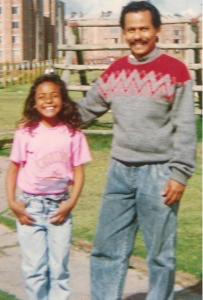By: Anthony B. Emmi
Impunity Watch Staff Writer
WASHINGTON, D.C. – The Inter-American Commission on Human Rights (Commission) has referred the case of Pedro Julio Movilla Galarcio to the Inter-American Court of Human Rights. The Colombian government allegedly disappeared Movilla Galarcio on May 13th, 1993.

Movilla Galarcio is one of 120,000 reported missing persons to have allegedly disappeared during the bloody 52-year conflict that gripped the nation between 1954 and 2016. Many citizens of Colombia remain in danger as fragmented combatant groups continue to clash throughout the country.
Examination of the specific circumstances surrounding Mr. Movilla’s disappearance revealed compelling evidence suggesting that he was disappeared by the State. As a union leader and leftist, Mr. Movilla fit into a group of people which was highly targeted throughout the conflict. Around the time of the disappearance, people like Mr. Movilla suffered high rates of execution and forced disappearance. The Commission notes further that a person of Mr. Movilla’s profile is labeled an “internal enemy” of the state in government counter-insurgency manuals.
In addition to these broad factors, Mr. Movilla and his family were surveilled, and strangers often warned him to be careful of his safety. In terms of surveillance, the State security forces created intelligence files regarding Mr. Movilla’s political and union activity, along with an alleged link to a guerilla organization. The State provided no explanation for the intelligence it gathered on Mr. Movilla.
After Mr. Movilla disappeared, evidence points toward the possibility of a cover-up effort. The State denied the habeas corpus meant to locate Mr. Movilla simply because his specific place of detention was not listed, an obvious impossibility. Investigation efforts into the disappearance were characterized by inefficient proceedings, which have left the investigation in its infancy more than 25 years later. The State did not make efforts to locate Mr. Movilla until 15 years after his disappearance. The combination of the specific circumstances and the broader historical context led the Commission to the conclusion that the State forcibly disappeared Mr. Movilla.
Directly regarding Mr. Movilla, the Commission found the State violated Articles 3 (Right to Juridical Personality), 4 (Right to Life), 5 (Right to Humane Treatment), 7 (Right to Personal Liberty), 8 (Right to a Fair Trial), and 16 (Freedom of Association) of the American Convention on Human Rights (Convention). Regarding Mr. Movilla’s family, the State is in violation of Article 5, due to the extreme mental anguish suffered as a result of the disappearance.
The Commission has also made five recommendations for action to be taken by the State. First, the State should create a method to compensate Mr. Movilla’s family in both a material and immaterial manner. Second, the State should provide mental health services for Mr. Movilla’s family. Third, it should attempt to find Mr. Movilla or uncover his story and deliver his remains if the search yields them. Fourth, see the criminal investigation of Mr. Movilla’s disappearance to its conclusion, exercising proper diligence. Finally, take measures to prevent this conduct in the future, such as eliminating the use of the general profile describing Mr. Movilla in counterinsurgency manuals.
For more information, please see:
Human Rights Watch – World Report 2020: Colombia Events of 2019 – 2020
International Commission on Missing Persons – ICMP Colombia Infographic- 1 Sept. 2020